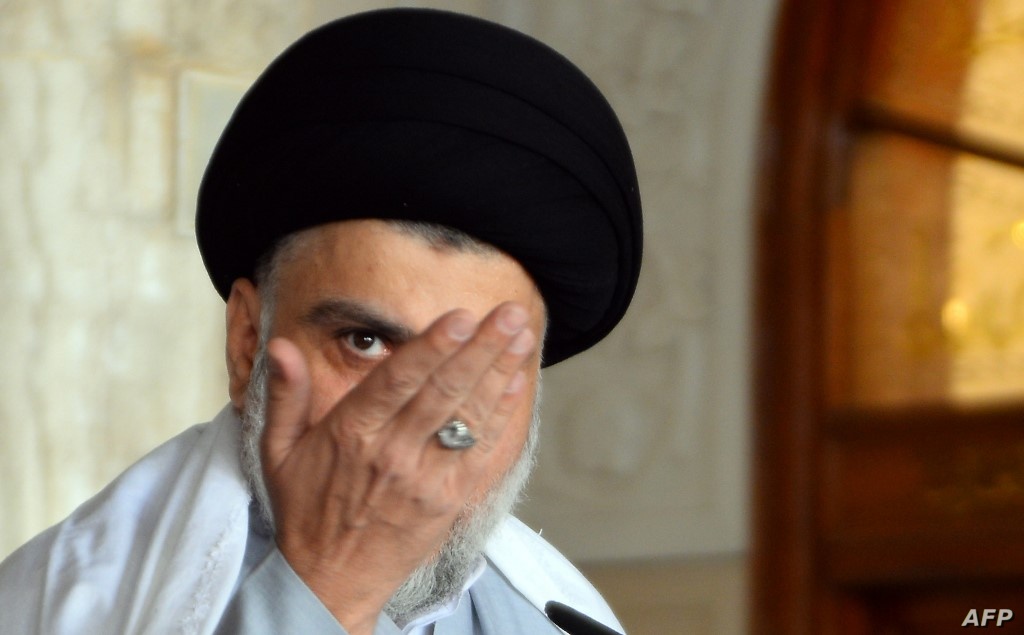The rule of law is heading towards the “largest bloc” and the Sadrists comment: We will not return to 2010
The rule of law is heading towards the “largest bloc” and the Sadrists comment: We will not return to 2010
2021-10-13 08:45
 Shafaq News/ The Sadrist movement led by Muqtada al-Sadr commented today, Wednesday, on the movement of a number of political forces to form a “larger bloc” to confront it and withdraw the parliamentary majority from it, at a time when the State of Law coalition led by Nuri al-Maliki spoke about this “bloc” that will form the new government.
Shafaq News/ The Sadrist movement led by Muqtada al-Sadr commented today, Wednesday, on the movement of a number of political forces to form a “larger bloc” to confront it and withdraw the parliamentary majority from it, at a time when the State of Law coalition led by Nuri al-Maliki spoke about this “bloc” that will form the new government.
The leader of the Sadrist movement, Issam Hussein, told Shafaq News Agency, “The movement of some political forces to form the largest bloc to confront the Sadrist bloc, are attempts to pressure the movement, as it obtained the parliamentary majority to submit to a project similar to the project that built the 2010 government.”
Hussein indicated that “this same project that took over the government of Adel Abdul-Mahdi and what happened from the demonstrations, and this same project is trying to gather some of the diaspora blocs that got very few parliamentary seats, as an attempt to find a political opportunity for them in the next stage.”
The leader of the Sadrist movement added, “This movement will not affect the majority of the Sadrist bloc,” explaining that “the constitution gave the bloc the right to form the next government, as it is the winner of the highest number of seats in the early parliamentary elections.”
For his part, a leader in the State of Law coalition revealed the bloc that will form the new Iraqi government, during the coming period.
Muhammad Al-Sihoud told Shafaq News Agency, “The largest bloc will be formed in the first parliament session, which is political forces allied with each other,” explaining that “this was confirmed by the Iraqi constitution and clearly explained by the Federal Supreme Court.”
And Chihod said, “So far, there are no agreements on forming political alliances for the purpose of forming the largest bloc, but there are understandings and convergence of views between a number of political forces from different components, and the formation of alliances may be after the final election results are resolved.”
The Iraqi constitution of 2005 granted the right to form a government to the most numerous parliamentary bloc, as Clause (First) of Article 76 of it states the following: “The President of the Republic assigns the candidate of the most numerous parliamentary bloc to form the Council of Ministers within 15 days from the date of the election of the President of the Republic,” but opinions It is still divided so far over the concept of “the most numerous parliamentary bloc”, does it mean the winner of the elections, or the one that is formed within Parliament by two or more coalitions after the results are announced?
The Federal Supreme Court explained this concept in its decision issued in No. 25/Federal/2010 on March 25, 2010 saying, “The expression of the most numerous parliamentary bloc means: As for the bloc that was formed after the elections through a single electoral list, it entered the elections with a specific name and number and won On the largest number of seats, or the bloc that gathered from two or more electoral lists that entered the elections with different names and numbers, and then coalesced into one bloc with one entity in the House of Representatives, whichever is more in number, then the President of the Republic assigns the candidate of the parliamentary bloc whose seats have become Parliament in the first session of the House of Representatives is more numerous than the other bloc or blocs, by forming the Council of Ministers based on the provisions of Article 76 of the Constitution.
As a result of this interpretation, the rug was pulled from under former Prime Minister Iyad Allawi, the leader of the Iraqi List in the second round of government formation elections in 2010, although his list had won 92 seats at the time, and former Prime Minister Nuri al-Maliki – whose list got the “Coalition of the State of Law”. On 89 seats – from its formation after its alliance with various powers.
shafaq.com
